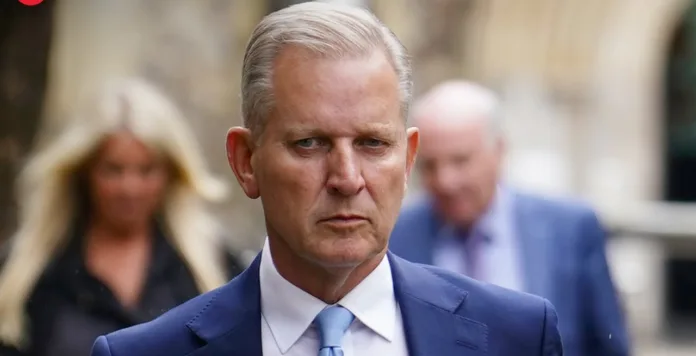At an inquest into Steve Dymond’s death, Jeremy Kyle asserts his confrontational approach was aimed at encouraging honesty, not humiliation
Jeremy Kyle has faced scrutiny over his handling of Steve Dymond during an inquest into the latter’s death, which followed his appearance on The Jeremy Kyle Show. Dymond, 63, took his own life seven days after failing a lie detector test on the show, where he was accused of cheating on his ex-fiancee, Jane Callaghan.
Footage shown to Winchester Coroners’ Court depicted Kyle delivering harsh remarks to Dymond, including telling him to “grow a pair of balls” and expressing distrust with comments like, “I wouldn’t trust you with a chocolate button, mate.” These clips, not aired during the original broadcast, have raised concerns about Kyle’s approach and its potential impact on Dymond.
In his defence, Kyle described his presenting style as direct yet empathetic. He asserted that his goal was to push Dymond to reveal the truth, believing it could potentially mend his relationship with Callaghan. Kyle emphasized that he had no prior knowledge of Dymond’s personal struggles and stated that his behaviour was consistent with his usual approach on the show.
During the inquest, Kyle dismissed allegations that his conduct contributed to Dymond’s death. He argued that there were no complaints about his behaviour in the messages reviewed, and he highlighted that he was merely executing his role as a presenter without direct influence over the show’s production decisions.
Text messages sent by Dymond after the show reflected his distress, including one stating, “I hope the Jeremy Kyle Show is so happy now about what they have done to me.” Despite the show’s after-care team offering support and follow-up, Dymond’s mental health history and the intensity of the show’s environment were questioned.
Kyle mentioned that he had been briefed on guests’ backgrounds and had access to information that could inform his interactions. However, he denied being trained in managing emotionally fragile guests, asserting that he saw each story as a journey toward conflict resolution.
The inquest revealed that Dymond had a history of depression and had previously attempted suicide multiple times. Despite this, he had repeatedly contacted the show to secure his appearance, presenting a letter from his GP as evidence of the urgency he felt. Kyle and the production team maintained they had measures in place, including a GP letter and after-care team, to address such situations.
The inquest continues, with further examination expected into the responsibilities of the show’s producers and the impact of its format on participants’ mental health.
Analysis:
Political:
The inquest into Steve Dymond’s death raises important questions about the responsibilities of media personalities and producers in handling vulnerable individuals. Jeremy Kyle’s defence highlights the ongoing debate about accountability and ethical practices in reality TV. The case could prompt regulatory reviews and potential reforms in how such shows manage and support their guests, reflecting broader concerns about media ethics and participant welfare.
Social:
The confrontation between Jeremy Kyle and Steve Dymond exemplifies the broader societal discussion about the impact of reality TV on mental health. The show’s format, which often emphasizes conflict and emotional extremes, has been criticized for its potential to exacerbate the mental health issues of participants. This case underscores the need for media formats to evolve in ways that prioritize the well-being of individuals involved and address the ethical implications of broadcasting personal struggles.
Racial:
The case does not directly address racial issues, but it reflects broader conversations about diversity and representation in media. Ensuring that all participants, regardless of background, are treated with respect and sensitivity is crucial. The focus on how reality TV impacts individuals could lead to more inclusive and compassionate approaches to participant management in the industry.
Gender:
The handling of Steve Dymond’s appearance on The Jeremy Kyle Show also intersects with gender dynamics. The pressure and expectations placed on individuals in such high-stakes environments can disproportionately affect men and women differently, particularly in how their emotional responses are perceived and managed. This case could lead to increased scrutiny on how gendered expectations and biases influence reality TV formats and participant treatment.
Economic:
Economically, the fallout from this case highlights the risks involved in reality TV production. The substantial investments in shows like The Jeremy Kyle Show come with the responsibility to ensure participant safety. The financial and reputational costs of mishandling such situations can be significant, potentially leading to changes in how reality TV is produced and the measures in place to protect participants. The industry may face increased pressure to balance entertainment value with ethical considerations and participant care.
